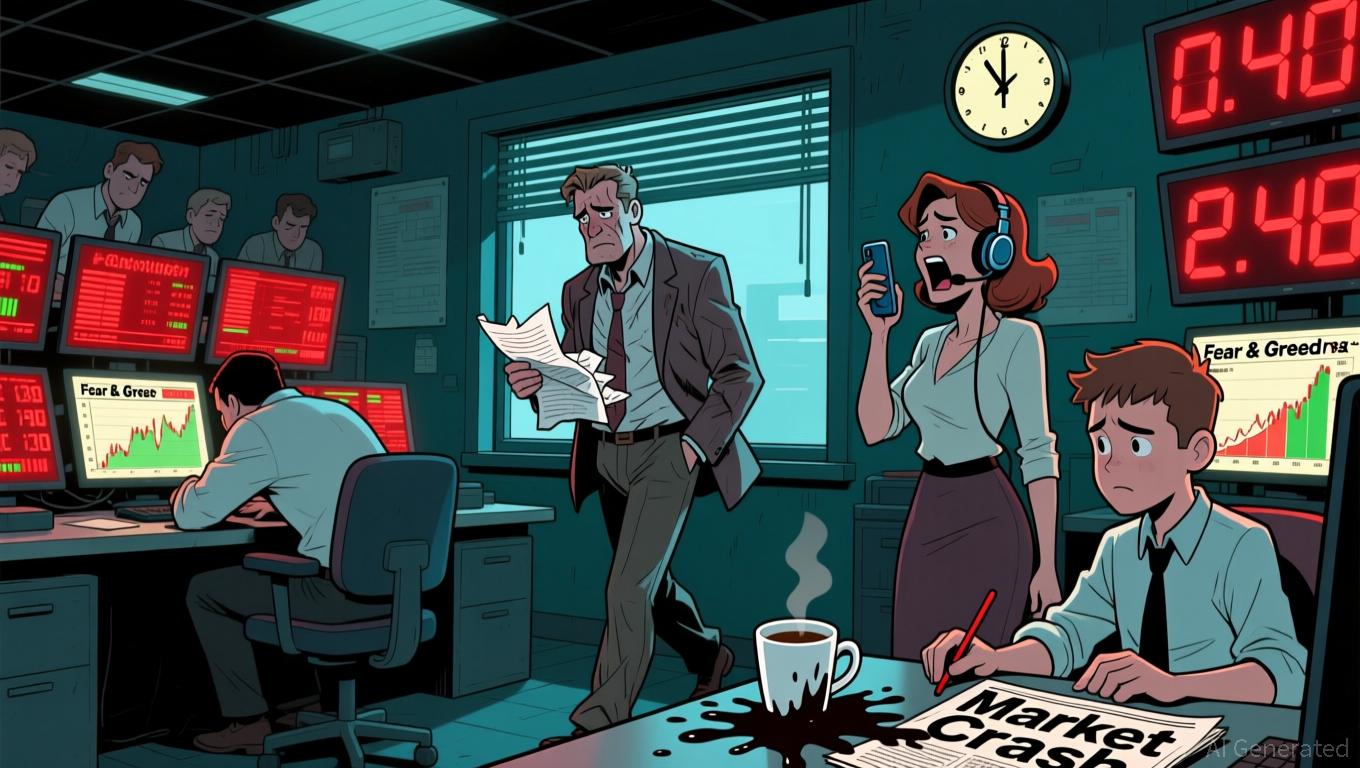Fed’s QE Strategy: Could AI Mania Lead to a Repeat of the 1999 Bubble?
- Billionaire Ray Dalio warns Fed's shift to QE risks inflating an AI-driven bubble akin to 1999's dot-com crash. - He criticizes reinvesting MBS proceeds into Treasury bills as monetizing debt while cutting rates amid large fiscal deficits. - Analysts highlight risks of reduced T-bill supply, lower yields, and repo market strains from Fed's $15B/month Treasury demand. - AI sector valuations and corporate earnings will test Dalio's concerns as November inflation data and PMI reports approach.
Billionaire investor Ray Dalio has sounded a serious alarm regarding the Federal Reserve’s latest policy direction, cautioning that its shift away from quantitative tightening (QT) toward a version of quantitative easing (QE) could fuel a speculative bubble similar to the late 1990s dot-com surge, as reported by a
The central bank’s recent decision to end its QT initiative and keep its balance sheet steady has sparked concerns about potential market instability, according to a

The next few weeks will put these perspectives to the test. Investors are monitoring November’s inflation numbers and manufacturing PMI data for hints about the Fed’s future policy decisions, as indicated by the
Disclaimer: The content of this article solely reflects the author's opinion and does not represent the platform in any capacity. This article is not intended to serve as a reference for making investment decisions.
You may also like
Bitcoin Updates Today: Mass Sell-Offs and Major Investors: November's Volatile Crypto Market Revealed
- Bitcoin fell below $95,000 in November 2025, triggering a market-wide selloff as Ethereum and Solana dropped 12-13%, with a $867M ETF outflow amplifying panic. - Investor anxiety spiked (Fear & Greed Index at 16), dragging down crypto-exposed stocks like MicroStrategy (-7%) and Robinhood (-9%), while Bybit reported $19B in open interest losses. - Regulatory clarity and U.S. government resumption eased short-term tensions, but geopolitical risks from China-Taiwan tensions and macroeconomic uncertainty per

Acurast Invests $11 Million to Address Cloud Computing Limitations Using Decentralized Smartphone Networks
- Acurast secured $11M in funding led by CoinList to advance its smartphone-powered decentralized compute network for Web3. - The platform aims to address cloud computing bottlenecks by transforming mobile devices into verifiable processing nodes. - This round highlights growing crypto VC interest in compute networks, with $122M raised across 10 projects in the same week. - Acurast's strategy aligns with trends in utility-driven tokenomics and decentralized infrastructure adoption.

Bitcoin Updates: Hong Kong and Brazil Propel Bitcoin Infrastructure Expansion, Unlocking $378 Billion in E-Commerce Opportunities
- Bitcoin Depot expands to Hong Kong, leveraging its 9,000 U.S. kiosks to boost institutional and retail adoption through cash-to-Bitcoin services. - Spreedly and EBANX collaborate to unlock Brazil's $378B e-commerce market via Pix Automático and NuPay, covering 98% of local payment methods. - Canaan Inc. advances Bitcoin mining efficiency with 7.85 EH/s hashrate and gas-to-computing pilots, strengthening network security and scalability. - Arcos Dorados' 61% digital sales growth in Q3 2025 highlights the

Blockchain Betting's Legal Challenge: Is It Considered Gambling or a Derivative?
- NBA star Tristan Thompson advocates blockchain-based sports prediction markets, aligning with DeFi's potential to transform fan engagement. - Kalshi faces legal scrutiny as a federal judge questions whether its event contracts qualify as derivatives under U.S. commodity laws. - Blockchain startups like Ideosphere and Portage Biotech explore prediction markets for scientific funding, leveraging tokenized assets and staking revenues. - Regulatory ambiguity over derivatives vs. gambling risks stifling innov
